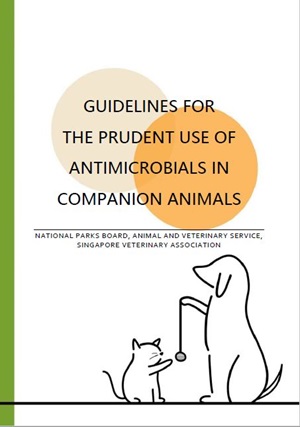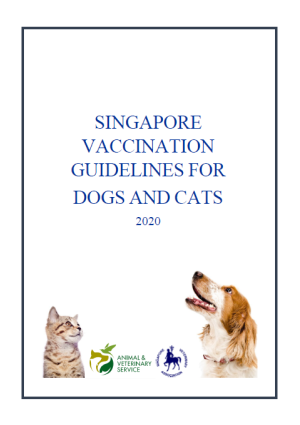Antimicrobial resistance
Antimicrobial resistance
What is antimicrobial resistance?
Antimicrobial resistance, or AMR, occurs when bacteria, viruses, fungi and parasites no longer respond to antimicrobial agents. As a result of drug resistance, antibiotics and other antimicrobial agents become ineffective and infections become difficult or impossible to treat, increasing the risk of disease spread, severe illness and death.
Why is antimicrobial resistance a concern?
AMR is happening here and now. It is one of the biggest threats to global health, food security and development today.
Antimicrobial agents are used to prevent, control and treat infectious diseases in humans, animals and plants, but they are becoming increasingly ineffective. The misuse and overuse of antimicrobial agents has led to accelerated development and spread of AMR over the years.
A micro-organism’s resistance to existing antimicrobials is increasing faster than the development of new antimicrobials. The dwindling availability of effective antimicrobials means there are less defence mechanisms available to protect humans and animals against micro-organisms.
What is our response to antimicrobial resistance?
We recognise the threat that AMR poses to human health, animal health, and animal welfare globally. A “One Health” response to AMR will help save millions of lives, preserve antimicrobials for generations and secure the future from drug-resistant pathogens.
The national strategic action plan on AMR was developed in 2017, and is implemented by the Ministry of Health (MOH); the National Environment Agency (NEA); the National Parks Board (NParks); PUB, Singapore’s National Water Agency; and the Singapore Food Agency (SFA). This plan consists of a framework that strengthens and enhances activities combating AMR, using a “One Health” approach. This term describes an approach involving the human, animal, food, and environment sectors.
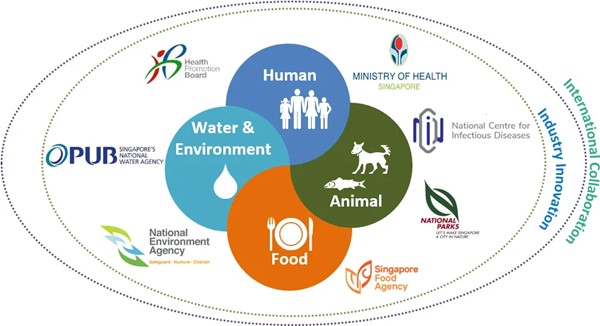
Related publications:
- National Strategic Action Plan on AMR
- One Health Surveillance Report on Antimicrobial Utilisation and Resistance, 2017
- National Strategic Action Plan Progress Report (2018-2020)
- One Health Surveillance Report on Antimicrobial Utilisation and Resistance, 2019
What can I do as a pet owner?
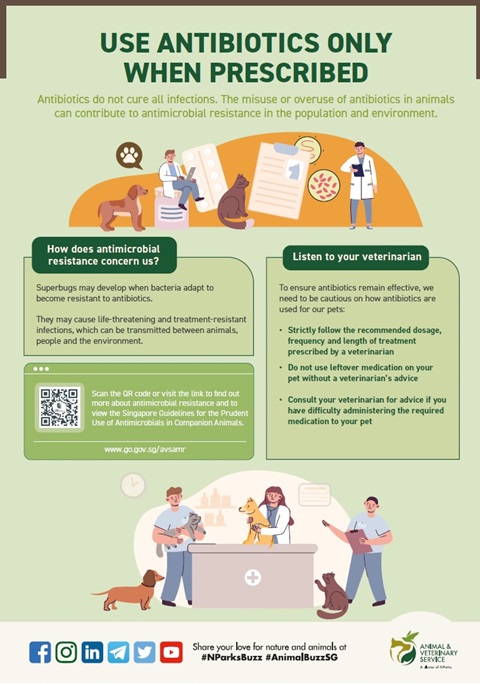
Click here or on the infographic to download.
- Only use antibiotics when prescribed or administered by a veterinarian. Not every infectious disease requires antibiotics treatment.
- Follow the dose, frequency, and length of treatment prescribed by your veterinarian, even if your pet seems to have recovered.
- Keep your pet healthy. A healthy animal can better fight off infections.
- Adopt preventative disease management measures. One way is to keep your animal’s vaccination and anti-parasitic treatment updated, as this prevents infections.
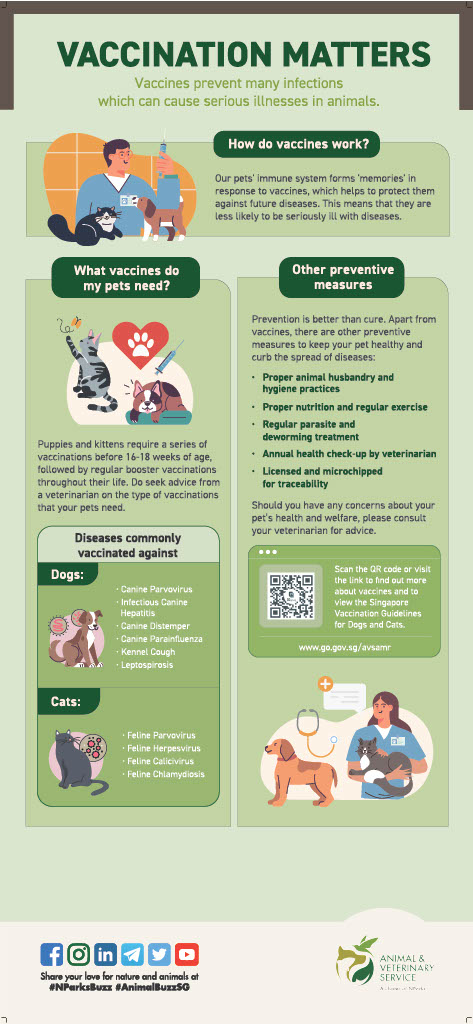
Click here or on the infographic to download.
Singapore Guidelines for the Prudent Use of Antimicrobials in Companion Animals
AMR has been declared as one of the top 10 global public health threats by the World Health Organisation (WHO). It endangers human health and threatens the health and welfare of all animals.
The Animal & Veterinary Service, a cluster of the National Parks Board (NParks/AVS), has partnered with the Singapore Veterinary Association (SVA) to produce Singapore’s first Guidelines for the Prudent Use of Antimicrobials in Companion Animals. This guides local veterinarians on good antimicrobial stewardship practices, and includes a prescribing guide for first-line antimicrobial selection. It also contains background information on properties of antimicrobials and a client education tool kit.
Singapore Vaccination Guidelines for Dogs and Cats
Vaccines are essential to animal health and they can prevent many infectious diseases which can cause serious illnesses in animals. By reducing the chances of our companion animals falling sick, vaccines also reduce the need for them to receive treatment such as antibiotics, which when not used correctly, can contribute to antimicrobial resistance.
The Vaccination Guidelines Working Group, comprising veterinarians from NParks/AVS and the Singapore Veterinary Association (SVA), have developed the very first Singapore Vaccination Guidelines for Dogs and Cats. The guidelines contain updated and evidence-backed recommendations that are suited to our local context and are intended to provide guidance to veterinarians practising in Singapore. Click here on the thumbnail image below to download the guidelines.
Click here to view or download a brochure for pet owners which contains information on why and which vaccinations are important for dogs and cats, FAQs about vaccinations, and a table to keep track of pet vaccinations.
Vaccination Guidelines for Rabbit Haemorrhagic Disease Virus (RHDV)
(last updated on 18 November 2020)
For the latest information regarding RHDV vaccination, please click here.
Click here to download the infographic.
Further information
World Organisation for Animal Health (WOAH) factsheet on antimicrobial resistance
World Organisation for Animal Health (WOAH) webpage on antimicrobial resistance
World Health Organization (WHO) webpage on antimicrobial resistance


